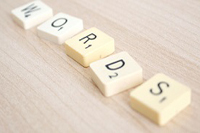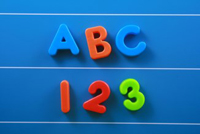Primary School Homework - How to Help
Every school will have its own policy in relation to homework. Similarly, every home should have one! The best policies are those that are worked out jointly, between all interested parties. The key is to establish a routine and stick to it, with no or few exceptions to the rule. If you have concerns about your child’s progress, or if there is a persistent problem for your child in doing certain homework, you should always discuss it with the teacher.
The following tips might help:
1) Agree on a set time for homework with your child. Give them some element of choice e.g., homework is done between 5.30 and 7.30 each evening, but the children start and finish at a time of their choosing, within that time frame.
2) When you’ve made decisions together, stick to them until they need to be reviewed. This applies to everything, not just homework issues!
3) Make sure they’re sitting comfortably at a table
4) Be consistent. Discuss, monitor, check and sign homework every night if possible, but at least very regularly. Better to spend 5 minutes every night than to leave it for three weeks and then spend 2 hours at it!
5) The child should be encouraged to complete the homework, working independently
6) It is best, though not always possible, for both parents to be involved in a child’s school life and homework, but not at the same time. Children should see that both parents are interested and involved in their education. It may be more difficult for one parent than the other to be available every evening but effort should be made to find some participative role suitable to all parties
7) Try to avoid confrontation with children over homework. If you’re getting impatient, it’s best to stop and try to come back to it a little later
8) Allow children to make mistakes. Rather than correct them all the time, encourage them to find and correct their own mistakes. Children must be able to accept that making mistakes is part of the learning process and it’s important that they are willing to go back and try a different method or approach.
9) If your child is having genuine difficulty, try to help them but don’t exceed the allotted time. Make contact with the teacher, explaining that your child honestly worked for the allotted time. If you can, point out the child’s specific difficulties.
10) If you display undue anxiety about children’s schoolwork or homework, it creates tension within the child. Acknowledge and respect their effort, honesty and enthusiasm. This way, children will progress and develop at their own pace, in a safe and relaxed environment
The Benefits of Homework
Homework will tend have a specific purpose and will be given consistently, in small quantities. It is extremely useful for a number of reasons:
- It acts as a form of communication between school and home
- It allows you to see how your child is progressing in different areas
- It helps to develop the child’s self-discipline
- It helps a child to become an independent learner
- It is helpful to revise or reinforce work done in school
- It may be used to finish work that was begun in school
Don’t judge your child’s teacher by the amount of homework he or she gives! Valuable school time can be ineffectively used if too much homework needs to be corrected.
Guidelines on a Class by Class Basis
In 1st and 2nd class, twenty minutes per night, in one or two subject areas, with a little reading should be sufficient. In 3rd and 4th class, this goes up to forty minutes and typically, in 5th and 6th class, homework time will not exceed one hour.
Your Role
The NCCA (National Council for Curriculum and assessment) produced a really useful booklet to coincide with the introduction of the 1999 Primary School Curriculum. As a parent, you have an important role to play in:
- Encouraging your child’s work
- Observing their work
- Looking over completed work and signing it
Try to make sure that children make an honest effort to do the homework without assistance. If they have a difficulty, your help should generally take the form of prompting and guiding them towards completing the task that is set. If you have given them a reasonable amount of help and they still cannot complete the task, you can help best by writing a note to the teacher telling him/her of the child’s difficulties”. Ref: Your child’s learning – Guidelines for parents, NCCA 1999.
Source: The Essential Parent’s Guide to the Primary School Years by Brian Gilsenan, published by Primary ABC.
Additional Useful Homework Resources on Schooldays.ie






